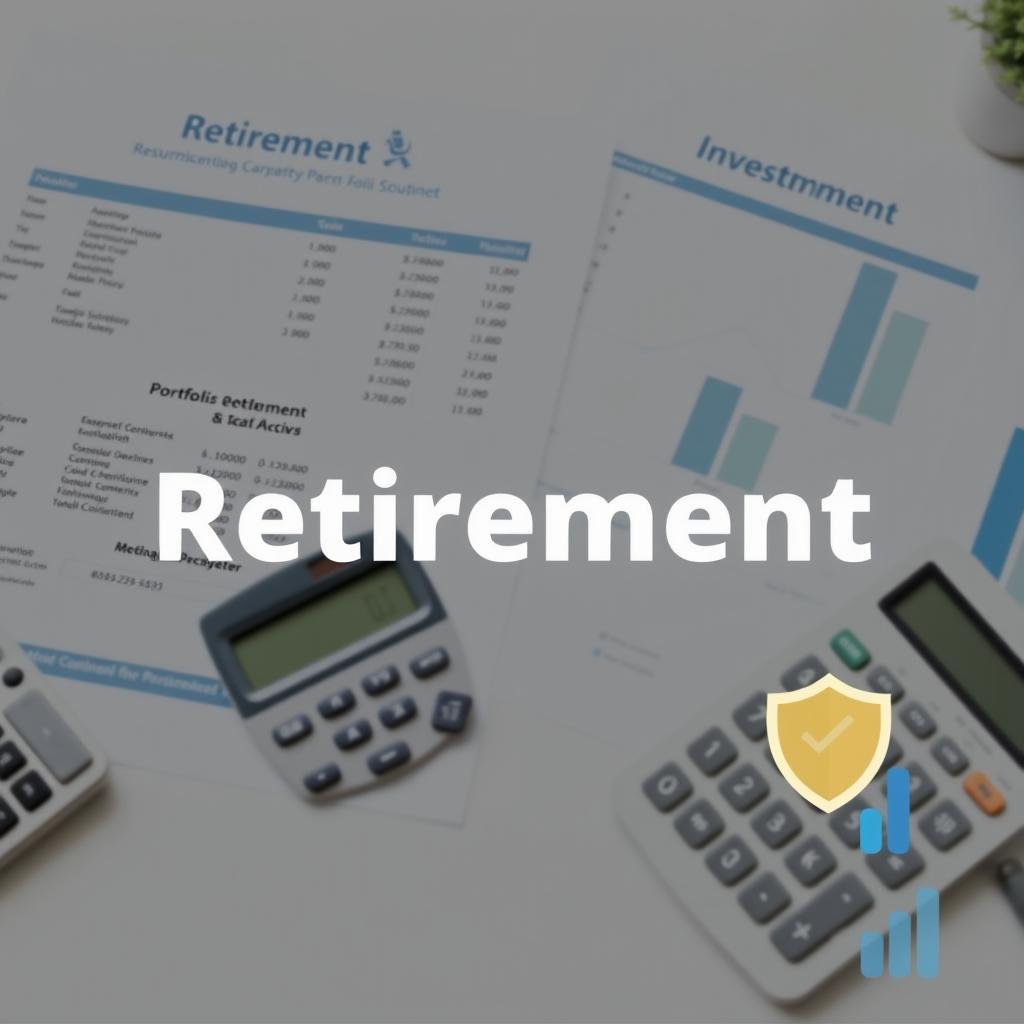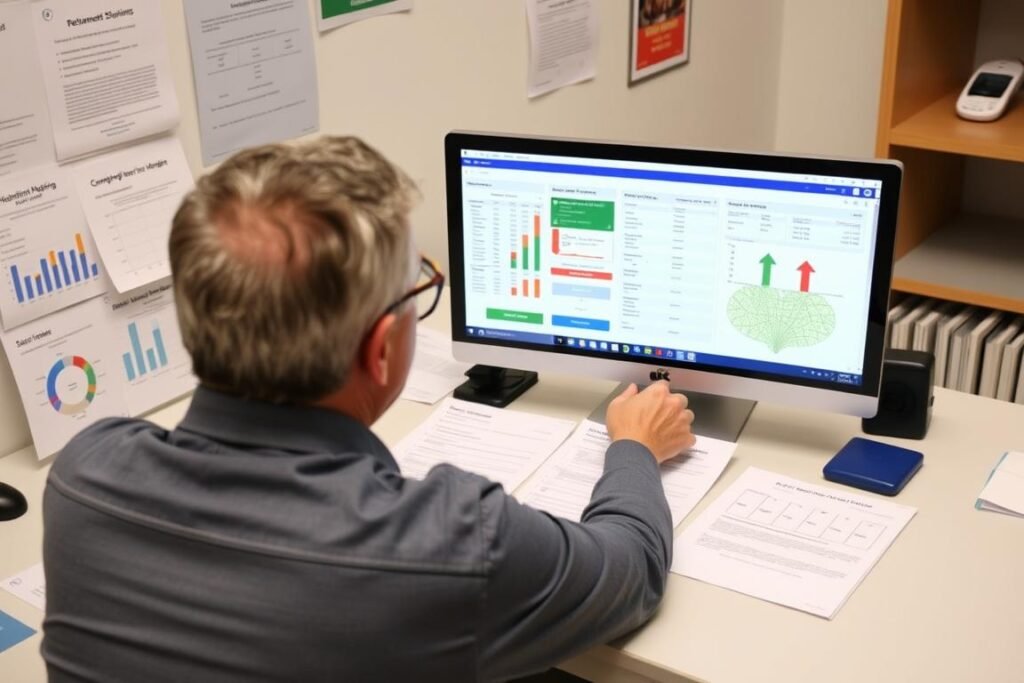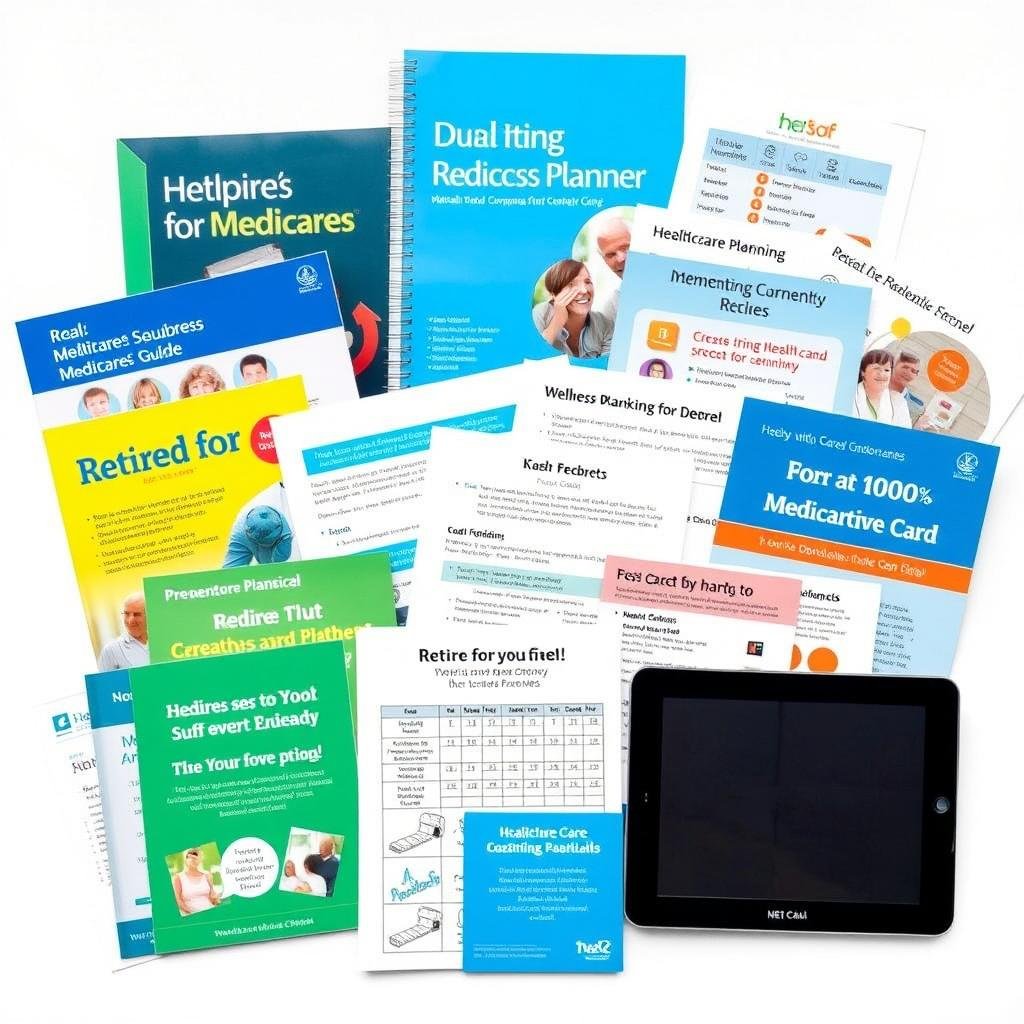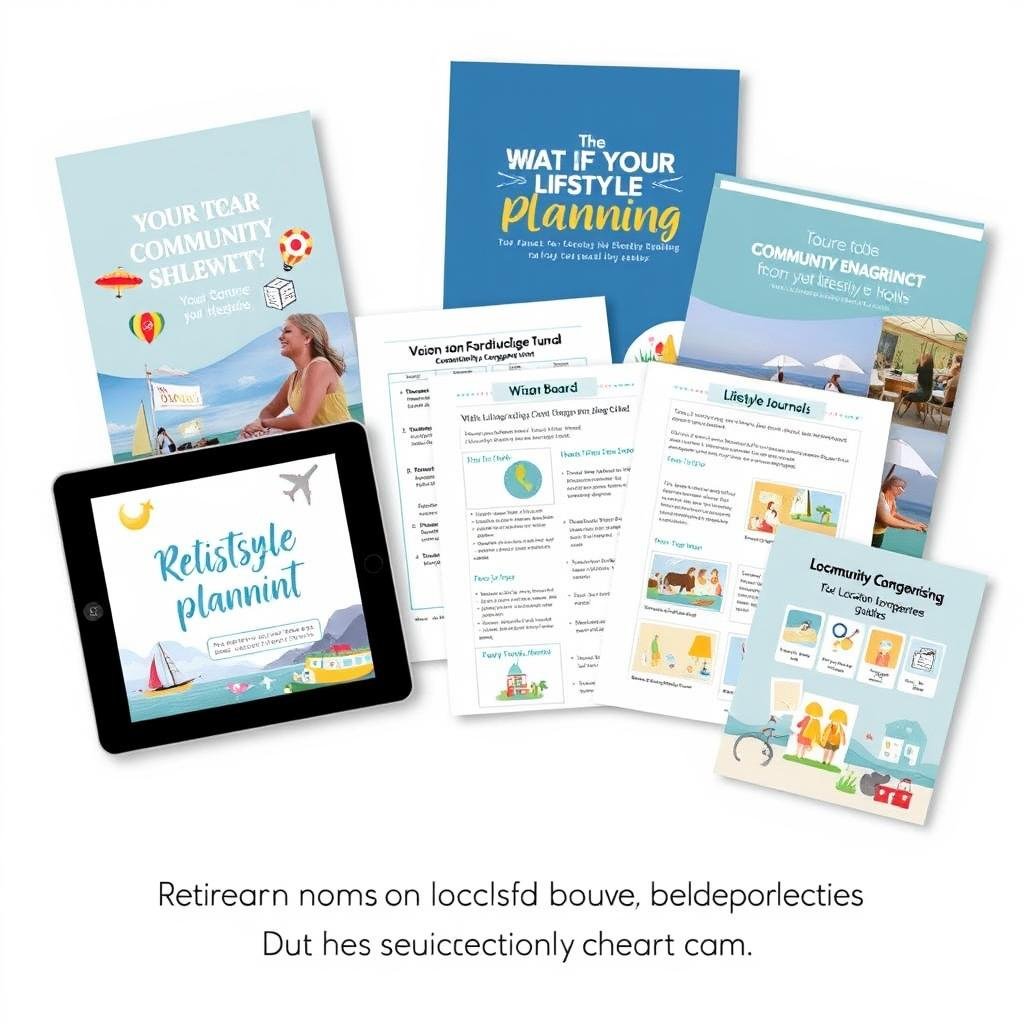Are you worried that your retirement plan might be missing crucial elements beyond just saving money? Traditional retirement planning often focuses narrowly on financial aspects, potentially leaving you unprepared for the multidimensional reality of your golden years. Holistic retirement planning offers a more comprehensive approach that integrates your finances, health, lifestyle preferences, emotional well-being, and legacy goals into one cohesive strategy.
This guide will walk you through the essential components of a truly comprehensive retirement plan, helping you create a roadmap that addresses not just how you’ll pay for retirement, but how you’ll actually live and thrive during this important life stage.
What Is Holistic Retirement Planning?
Holistic retirement planning is a comprehensive approach that considers all aspects of your life during retirement, not just your financial situation. While traditional retirement planning primarily focuses on accumulating sufficient wealth, holistic planning recognizes that a truly fulfilling retirement requires attention to multiple interconnected dimensions.
| Traditional Retirement Planning | Holistic Retirement Planning |
| Focuses primarily on financial assets | Integrates finances, health, lifestyle, relationships, and purpose |
| Aims for specific savings target | Aligns financial resources with personal values and goals |
| Often treats retirement as an endpoint | Views retirement as a dynamic life stage with evolving needs |
| Limited consideration of healthcare costs | Comprehensive healthcare and long-term care planning |
| Minimal attention to psychological transition | Addresses emotional and identity adjustments |
The Five Core Pillars of Holistic Retirement Planning
Financial Security
Creating sustainable income streams, tax-efficient withdrawal strategies, and protection against inflation and market volatility.

Physical & Mental Health
Planning for healthcare costs, insurance coverage, wellness activities, and potential long-term care needs.

Lifestyle & Housing
Determining where and how you’ll live, including housing options, location considerations, and daily activities.

Purpose & Social Connection
Maintaining meaningful relationships, pursuing passions, volunteering, part-time work, or other purposeful activities.

Legacy Planning
Estate planning, wealth transfer strategies, charitable giving, and documenting your wishes for future generations.

Emotional Well-being
Preparing for the psychological transition to retirement, maintaining identity, and finding fulfillment beyond work.

Ready to Create Your Holistic Retirement Plan?
Our team of certified financial planners specializes in comprehensive retirement strategies that address all aspects of your future well-being.
Integrating Non-Financial Aspects Into Your Retirement Plan
While financial planning forms the foundation of retirement preparation, a truly holistic approach requires thoughtful integration of non-financial elements. Here’s how to incorporate these crucial aspects into your comprehensive retirement strategy:
Healthcare Planning Beyond Medicare
Healthcare costs represent one of the largest expenses in retirement, yet many traditional plans underestimate their impact. A holistic approach includes:
- Calculating projected healthcare costs based on your personal health history and family medical background
- Understanding Medicare coverage options, enrollment periods, and potential supplemental insurance needs
- Exploring Health Savings Accounts (HSAs) as tax-advantaged vehicles for future medical expenses
- Developing a long-term care strategy through insurance, self-funding, or hybrid approaches
- Creating advance healthcare directives and appointing healthcare proxies

Social Connections and Community Engagement
Research consistently shows that strong social ties correlate with better health outcomes and greater happiness in retirement. Your holistic plan should address:
Building Your Social Network
- Maintaining relationships with former colleagues
- Strengthening family connections across generations
- Developing new friendships through shared interests
- Considering proximity to loved ones in housing decisions
Community Involvement
- Exploring volunteer opportunities aligned with your values
- Joining clubs, religious organizations, or interest groups
- Participating in lifelong learning programs
- Contributing skills through mentorship or consulting
Purpose-Driven Activities
Many retirees experience a sense of loss when leaving their careers behind. A holistic retirement plan helps you identify meaningful activities that provide structure, purpose, and fulfillment:

Work Transition
Consider phased retirement, consulting, mentoring, or starting a small business based on your expertise and interests.
Learning & Growth
Pursue educational opportunities, develop new skills, or explore subjects you’ve always been curious about but never had time to study.
Creative Expression
Engage in arts, crafts, writing, music, or other creative pursuits that provide personal satisfaction and potential social connections.
Case Study: The Johnsons’ Holistic Retirement Transformation
Robert and Susan Johnson, both 62, initially focused solely on reaching their financial “number” for retirement. Their traditional plan had them on track financially, but they hadn’t considered several crucial aspects of their retirement lifestyle.
Through holistic retirement planning, they discovered that their vision of traveling extensively would require not just financial resources but also:
- A comprehensive healthcare strategy including international coverage
- Housing flexibility that wouldn’t require constant maintenance
- Technology skills to stay connected with family while traveling
- Physical fitness preparation for active adventures
By addressing these non-financial elements, the Johnsons created a more realistic and satisfying retirement plan that aligned their resources with their true priorities.
Creating Your Personalized Holistic Retirement Plan
Developing a comprehensive retirement strategy requires thoughtful consideration across multiple dimensions. Follow these actionable steps to create a personalized holistic retirement plan:
Step 1: Define Your Retirement Vision
- Create a detailed picture of your ideal retirement lifestyle
- Identify your core values and priorities
- Determine your preferred retirement timeline
- Consider potential phases of retirement (active, moderate, limited activity)

Step 2: Assess Your Current Position
- Inventory all financial assets and liabilities
- Evaluate your health status and insurance coverage
- Review your social connections and support network
- Assess your housing situation and future needs

Step 3: Identify Gaps and Opportunities
- Calculate your retirement income gap
- Identify potential health and long-term care needs
- Evaluate housing options and potential relocations
- Consider skills or relationships to develop before retirement

Essential Documents for Your Holistic Retirement Plan
Financial Documents
- Retirement income strategy with withdrawal plan
- Social Security claiming strategy
- Tax efficiency plan for distributions
- Investment policy statement
- Budget projections for different retirement phases
Legal & Healthcare Documents
- Will and trust documents
- Advance healthcare directive
- Durable power of attorney
- Long-term care strategy
- Legacy letter or ethical will
Need Help Creating Your Comprehensive Plan?
Our holistic retirement planning experts can help you integrate all aspects of your retirement strategy into one cohesive plan.
Case Study: Balancing Travel Dreams with Family Care Responsibilities
Maria, a 58-year-old healthcare professional, dreamed of extensive international travel during retirement. However, she also anticipated caregiving responsibilities for her 85-year-old mother with early-stage dementia.
Through holistic retirement planning, Maria developed a strategy that balanced these competing priorities:
- Created a financial plan that included both travel funds and potential caregiving costs
- Researched respite care options to allow for shorter travel periods
- Involved siblings in a shared family caregiving plan
- Explored technology solutions for remote monitoring during absences
- Adjusted her travel expectations to include more frequent, shorter trips rather than extended journeys
This integrated approach allowed Maria to honor both her personal aspirations and family responsibilities without sacrificing either completely.
Common Mistakes in Retirement Planning
Even well-intentioned retirement planning can fall short when it fails to take a holistic approach. Avoid these common pitfalls that can undermine your retirement security and satisfaction:
Holistic Planning Approach
- Integrates financial and non-financial aspects
- Accounts for inflation in healthcare costs
- Plans for multiple phases of retirement
- Considers emotional transition to retirement
- Prepares for potential long-term care needs
- Aligns financial decisions with personal values
- Includes contingency plans for unexpected events
Common Planning Mistakes
- Focusing exclusively on accumulating assets
- Underestimating healthcare and long-term care costs
- Failing to plan for different retirement phases
- Neglecting the psychological aspects of retirement
- Overlooking inflation’s impact on fixed income
- Making housing decisions without considering aging needs
- Delaying essential legal and estate planning documents

Case Study: Recovering from a One-Dimensional Retirement Plan
David, a 67-year-old former executive, had diligently saved for retirement and accumulated substantial wealth. However, within two years of retiring, he faced unexpected challenges:
- Loss of identity and purpose after leaving his high-status position
- Social isolation as work relationships faded
- Unanticipated healthcare costs not fully covered by Medicare
- Tension with his spouse over differing expectations about daily routines
By working with a holistic retirement planner, David was able to address these non-financial aspects. He developed new social connections through volunteering, created a part-time consulting practice to maintain professional engagement, and had important conversations with his spouse about shared retirement expectations.
This experience taught David that financial security alone couldn’t guarantee retirement satisfaction. The holistic adjustments he made significantly improved his retirement quality of life despite having to make these changes reactively.
Tools and Resources for Holistic Retirement Planning
Implementing a comprehensive retirement strategy requires the right tools and resources. Here are some valuable resources to help you develop and maintain your holistic retirement plan:
Financial Planning Tools
- Retirement calculators that factor in healthcare costs
- Social Security optimization tools
- Tax-efficient withdrawal strategy calculators
- Long-term care cost estimators
- Estate planning document generators

Healthcare Resources
- Medicare plan comparison tools
- Healthcare cost projection calculators
- Long-term care insurance evaluators
- Advance directive templates
- Wellness and preventive care guides

Lifestyle Planning Resources
- Retirement vision workbooks
- Relocation comparison tools
- Volunteer matching services
- Lifelong learning program directories
- Retirement coaching services

5 Key Takeaways for Successful Holistic Retirement Planning
- Integration is essential. Financial, health, lifestyle, and emotional aspects of retirement are interconnected and should be planned together.
- Start early but adjust often. Begin holistic planning at least 5-10 years before retirement, but review and revise regularly as circumstances change.
- Healthcare deserves special attention. Medical and long-term care costs are often underestimated and can significantly impact retirement security.
- Purpose matters as much as finances. Psychological well-being in retirement depends on maintaining meaningful activities and social connections.
- Professional guidance adds value. A financial advisor with expertise in holistic retirement planning can help integrate all aspects of your retirement strategy.
When should I start holistic retirement planning?
Ideally, holistic retirement planning should begin 10-15 years before your anticipated retirement date. This timeframe allows you to make meaningful adjustments to your financial strategy while also giving you adequate time to prepare for the non-financial aspects of retirement. However, it’s never too late to adopt a more comprehensive approach. Even if you’re already retired, holistic planning can help you optimize your current situation and address any gaps in your existing plan.
How do I find a financial advisor who specializes in holistic retirement planning?
Look for advisors with credentials such as Certified Financial Planner (CFP®) or Retirement Income Certified Professional (RICP®) who explicitly mention comprehensive or holistic planning in their service offerings. During initial consultations, ask specific questions about how they address non-financial aspects of retirement, their process for understanding your personal goals and values, and whether they work with other professionals (healthcare consultants, elder law attorneys, etc.) to provide truly comprehensive planning. Most importantly, ensure they’re fiduciaries who are legally obligated to act in your best interest.
How often should I review my holistic retirement plan?
Your holistic retirement plan should be reviewed annually at minimum, and more frequently when significant life events occur (health changes, family situations, major market movements). As you approach retirement, quarterly reviews may be appropriate to fine-tune your strategy. Once retired, regular reviews remain important as your needs and circumstances will continue to evolve through different phases of retirement. Each review should address all aspects of your plan—financial, health, housing, activities, and social connections—not just investment performance.
Embracing the Holistic Retirement Planning Revolution
Holistic retirement planning represents a paradigm shift from traditional approaches that focus exclusively on financial accumulation. By integrating all dimensions of well-being—financial security, physical and mental health, meaningful activities, social connections, and legacy considerations—you create a retirement strategy that supports true fulfillment and resilience.
The most successful retirees understand that the quality of their retirement years depends not just on how much they’ve saved, but on how thoughtfully they’ve prepared for all aspects of this significant life transition. By taking a comprehensive approach now, you position yourself for a retirement that aligns with your deepest values and aspirations.
Remember that holistic retirement planning is not a one-time event but an ongoing process that evolves as your circumstances and priorities change. With the right guidance and resources, you can create a retirement experience that’s not merely financially secure but truly rich in all the ways that matter most to you.
Ready to Transform Your Retirement Planning Approach?
Our team specializes in creating personalized, holistic retirement strategies that address every dimension of your future well-being.

